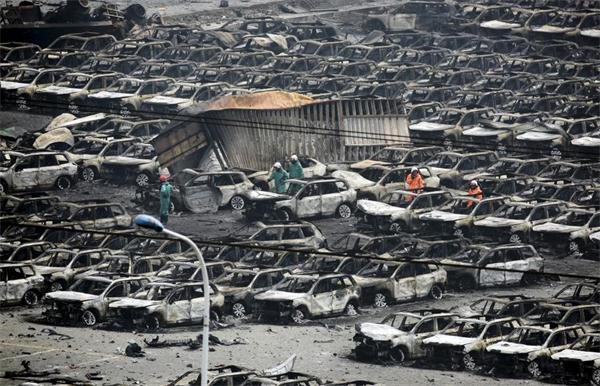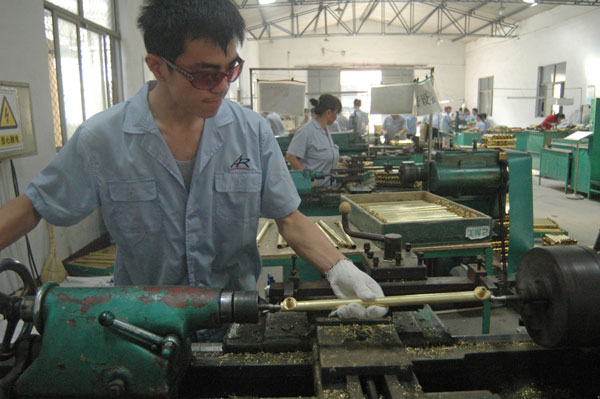No need, for it is functioning well
Updated: 2015-08-15 08:18
By Guan Zhe(China Daily)
|
|||||||||||
 |
|
Rescue workers search for survivors at the site of the explosions at the Binhai new district, Tianjin, China, August 14, 2015. Rescuers on Friday pulled one survivor from the wreckage of a warehouse in northeast China's Tianjin that was hit by two massive blasts, a city official told reporters at a briefing. [Photo/Agencies] |
The professionalism of a firefighter cannot be determined through mathematical calculations; one can't say for sure that A is better than B just because A has worked two years more than B.
Most firefighters in China are active People's Liberation Army soldiers who serve in the fire department for two years. The experience and professionalism they accumulate in those two years can't be compared with the so-called professional firefighters in other countries. Also, soldier-firefighters have a tradition of passing down their experiences to their successors. Since the tradition has been successful, there is no question of challenging its effectiveness.
Fighting a big blaze is a difficult job, and firefighters can gain useful experience only by being on the job. Yet useful experience is not necessarily related to how many years a firefighter serves in the fire brigade.
Since China's firefighters, contrary to many netizens' claim, are already quite professional, where is the need to professionalize them? Or do those people calling for professionalization want to turn soldier-firefighters into "professional" civil servants?
Way back in 1984, a professionalization pilot program was launched in Shenzhen, Guangdong province. But when a big fire broke out, those who actually brought it under control were members of the armed police force that were much younger than the "civil servant" firefighters. Twenty-five years later, the Shenzhen local government reformed the firefighting system again, with "civil servant" firefighters supervising fire-related issues and soldier-firefighters doing the actual firefighting.
This shows how ineffective the previous reform was, and that the public and the government have realized soldier-firefighters are more professional and reliable. Those talking about emulating foreign countries' examples should know that shocking incidents take place in advanced societies as well: A county administration near South Fulton, Tennessee, US, outsourced its firefighting services to a company that believed in "market values". After the deal, the company started collecting annual subscriptions from residents for providing fire services. And when a fire broke out in a house whose owner had not paid the subscription, the so-called professional firefighters refused to extinguish it - they stood by watching as the house burned to the ground.
Whether or not the fire department should be professionalized should be decided in the context of the South Fulton incident.
The article first appeared on guancha.cn.
Related Stories
Social media accounts closed for spreading rumors about blasts 2015-08-15 07:08
Photos after massive blasts in Tianjin 2015-08-15 01:47
Questions remain as fires put out after Tianjin blasts 2015-08-14 20:18
At least 21 firefighters killed in Tianjin blasts 2015-08-14 20:15
Today's Top News
Questions remain as fires put out after Tianjin blasts
China probes into Tianjin blasts, experts focus on chemicals
Crafty rhetoric, insincere politics
Japan's Abe offers no fresh apology for past aggression
Greek Parliament approves third bailout deal
Yuan stabilizes after central bank reassures markets
PBOC promises effective steps for yuan stability
British foreign secretary in Beijing to prepare for President Xi's visit
Hot Topics
Lunar probe , China growth forecasts, Emission rules get tougher, China seen through 'colored lens', International board,
Editor's Picks

|

|

|

|

|

|






